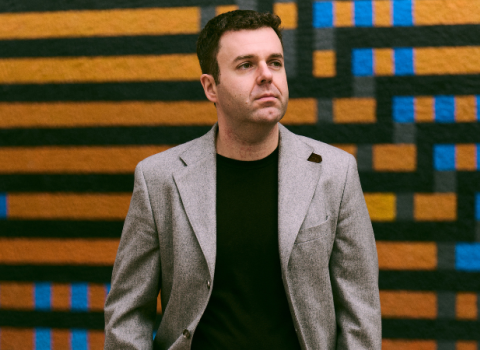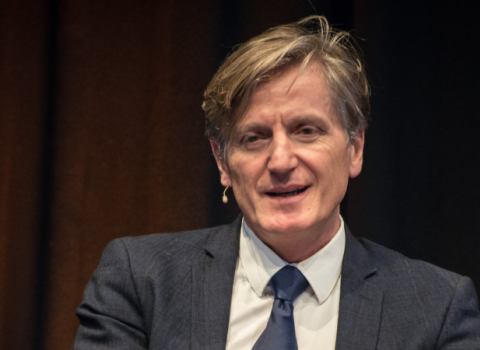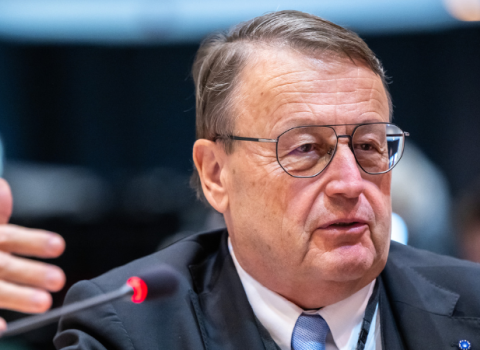Following the release of six draft legislative reports from members of the Industry, Research and Energy committee (ITRE) in the European Parliament, a fresh round of debate has started about the size and shape of Europe’s next framework programme, Horizon 2020. Science|Business had an in depth look at the reports and has identified six important areas: SMEs, the budget, excellence, the European Institute of Innovation and Technology (EIT), the Grand Challenges and simplification.
While major aspects of the programme have yet to be finalised, including the budget, the recent contribution from the ITRE committee does go a long way to shaping the programme, pointing out the strengths, weaknesses and questionable features within.
Horizon 2020: A larger role for SMEs
Bridging the gaps towards excellence
EIT to scale-up with larger budget
Confronting the Grand Challenges
Sometimes too simple and sometimes too complicated
MEPs want a more bottom-up approach for Horizon 2020
European Parliament to demand more control over Horizon 2020
EU Parliament challenges Horizon 2020 funding rates
MEPs propose moving the EIT to Strasbourg (and Parliament to Brussels)
Horizon 2020: A larger role for SMEs
Horizon 2020 has been designed with the goal of enhancing the role of small and medium-sized enterprises (SMEs). Beyond the acknowledged need for SMEs to start playing a more vital part in economic competitiveness and growth, the Parliament has called for further simplification and additional measures to help ensure that SMEs have a more significant role under Horizon 2020.
Members of the Industry, Research and Energy committee (ITRE) have made a number of key suggestions:
- Only SMEs may apply for calls listed under the new SME programme
- Calls under this instrument should be open calls that emphasise a bottom-up approach towards the topic
- The ‘time-to-contract’ under this instrument should not exceed six months
- The programme should provide SMEs with the ability to apply directly to phase two
- A single and dedicated budget linked to this instrument
A budget still in the balance
Perhaps the most striking feature of Horizon 2020 is its proposed budget of €80 billion. Yet, members of the ITRE committee in the European Parliament say this is not enough if Horizon 2020 is going to reach its goals.
Noting this budget represents a mere 6 per cent increase (in real terms) compared to the funding level of FP7 in 2013, MEPs have called for a total budget of €100 billion, as originally demanded.
Beyond increasing the budget, are other key proposals put forward:
- Attracting additional funding from the Structural Funds, the European Investment Bank (EIB) and leveraging public and private sector investment
- The design of the reimbursement rate system
- A more explicit link between the Global Monitoring for Environment and Security (GMES) and Horizon 2020
Bridging the gaps towards excellence
Beyond increased funding for research and promoting innovation on a broader scale, Horizon 2020 has adopted ‘excellence’ as a guiding theme. This is defined as a move away from fragmentation, removing overlaps and the smoothing over the very tangible divide in the European innovation landscape.
Some of the key programmes include:
- establishing ‘European Research Area Chairs’ to attract outstanding academics
- providing a ‘seal of excellence’ to project proposals that are ranked as outstanding but do not get funding because of budgetary limitations
- An online IPR marketplace where intellectual property can be bought and sold
EIT to scale-up with larger budget
The European Institute of Innovation and Technology is set to expand with the aid of funding from Horizon 2020. After receiving approximately €309 million under FP7, the institute is slated to receive a total of €3 billion under Horizon 2020.
To date, the three Knowledge and Innovation Communities ( KICs), Climate-KIC, EIT ICT Labs and the KIC InnoEnergy, operate in 12 EU countries and with around 200 partners. Under Horizon 2020, it is expected that the EIT will select three new KICs in 2014 and after an assessment, another three in 2017. The Parliament has offered a few more suggestions:
- Increase the number of KICs to be created
- Create a bottom-up and open approach in the selection of KICs
- Presentation of an annual report by the EIT Director to the Parliament
- Increasing the general involvement of the Council and the Parliament
- Push for the EIT to become a truly global brand of excellence
- Move the EIT headquarters to Strasbourg
Confronting the Grand Challenges
R&D focussed on social and environmental challenges will be the largest element of Horizon 2020, with around €31.7 billion of the total budget.
While there is general approval of the themes selected, two key recommendations put forward by the Parliament to ensure the budget is able to maximise its potential in addressing these challenges are:
- Establishment of Strategic Advisory Boards for each challenge
- A minimum of 15 per cent of the societal challenges budget should prioritise bottom-up research calls with no pre-defined topic
- Creating a new and seperate security challenge called "Protecting Freedom and Security in Europe"
Sometimes too simple and sometimes too complicated
Of all the changes from previous Framework Programmes to what is proposed in Horizon 2020, reducing the bureaucratic burden is the one for which there has been most clamour. The Commission has made a set of changes that aim to allow and encourage a broader and larger range of organisations to participate in open calls, with the promise of a simpler and more efficient process.
The entire structure of the programme has also been simplified and shaped towards three main goals: promoting excellent science, increasing industrial competitiveness, and finding answers to society’s biggest challenges. While the Parliament welcomes these adjustments, they remain critical of a number of the key features:
- A general clause that allows funding bodies to depart from the single set of rules that is to apply to all funding bodies
- A single funding rate that does not take the specific cost structures of different participants into account
- A simplified programme dedicated to SMEs
- No proposal of a single electronic system or portal to have exchanges with participants or allow them to check their financial viability online
- No substantial improvement in shortening the “time to grant” under Horizon 2020
- Not doing enough to increase support for industry partners
Next steps
Shortly after the summer recess, the ITRE committee will meet again to discuss new amendments and is expected to bring the final reports up for a committee vote in the autumn. New proposals are expected to surface and some of the existing ones might be altered or could disappear altogether. Parliament will have to reach an agreement with its co-legislator, the Council of Ministers, in time for Horizon 2020 to go live on the 1st of January, 2014. It is expected that negotiations will last well into the summer of 2013.





 A unique international forum for public research organisations and companies to connect their external engagement with strategic interests around their R&D system.
A unique international forum for public research organisations and companies to connect their external engagement with strategic interests around their R&D system.